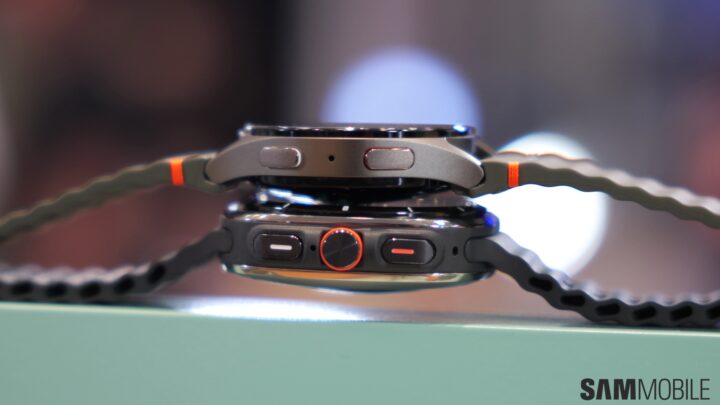The new Galaxy Watch 7 and Galaxy Watch Ultra are the most powerful and versatile smartwatches Samsung’s ever made. They boast many improvements across the board, but they also lost something along the way. Given their numerous upgrades and improvements, you might be surprised to learn that the Galaxy Watch 7 and Watch Ultra don’t support Wireless PowerShare.
The latter is one of the more unique features developed by Samsung for smartphone and wearable users. Wireless PowerShare is a technology that allows users to turn their Galaxy smartphones into wireless power banks to recharge other devices, such as Galaxy Watches, earbuds, and even Galaxy phones.
PowerShare is far from the most efficient way to recharge devices, but in theory, it is something that can come in handy in some situations. However, Samsung says the new Galaxy Watch 7 and Galaxy Watch Ultra had to abandon Wireless PowerShare because of other improvements to health tracking.
Redesigned BioActive sensor meant Wireless PowerShare had to go
Samsung’s new Galaxy Watches boast a redesigned BioActive sensor that elevates the accuracy of health and fitness tracking and expands the range of parameters the new Watches can track.
This advancement came at a cost. Samsung explains through a support page (via @JordyV27) published today that the two new Galaxy Watches had to drop support for Wireless PowerShare because of the shape of the redesigned BioActive sensor and back glass.
Their shape was designed to increase the level of accuracy when using health and fitness tracking, but it also conflicts with and prevents Wireless PowerShare from working. As a result, Samsung decided to drop support for Wireless PowerShare for the new smartwatches entirely.
Although having Wireless PowerShare capabilities on a smartwatch sounds convenient, in practice, for most users, it’s a quality-of-life feature they’ve never used. It can be useful in some situations when you might forget your charging puck and be in a pickle, but those situations are few and far between.
So, although it’s sad to see this feature getting stripped away, the fact that the Galaxy Watch 7 and Watch Ultra don’t support Wireless PowerShare isn’t going to be a big loss for most smartwatch users. And if what we’ve gained is more accurate and versatile health and fitness tracking, it’s probably a worthy trade-off.
The story continues after the hands-on video below…
Interestingly enough, it was 2022 when Samsung showed signs of not taking Wireless PowerShare much into consideration when designing its smartwatches. The Galaxy Watch 5 Pro supported Wireless PowerShare but felt more like an afterthought, as the shape of the wrist strap prevented the feature from working. Watch 5 Pro users had to remove the wrist strap before they could use PowerShare, and needless to say, not many people were willing to put up with that just to use a relatively inefficient method of recharging batteries.

